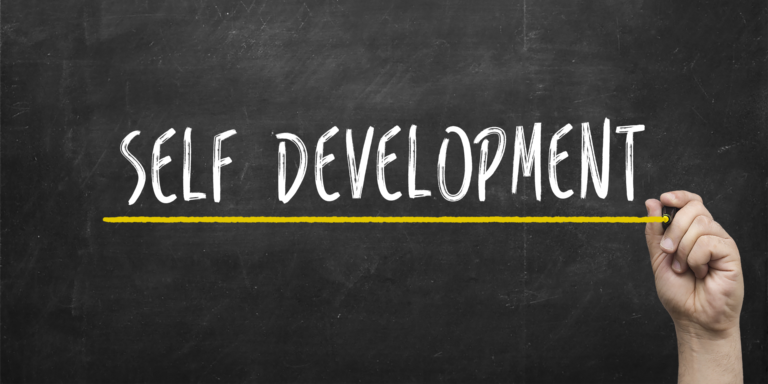Developing and Enhancing Teamwork Skills

In today’s interconnected and rapidly changing world, the ability to work effectively as part of a team is more crucial than ever.
Whether in a corporate environment, on the sports field, or within a non-profit organization, teamwork is a fundamental skill that drives success and innovation. This is because teams, when operating optimally, can achieve far more than the sum of their individual parts.
In this article we are going to talk about teamwork skills.
Why Teamwork Skills?
Teamwork skills are essential because they facilitate collaboration and communication among team members, enabling them to combine their strengths towards common goals. These skills aren’t just about working together; they’re about maximizing efficiency, creativity, and effectiveness in collective endeavors. They are crucial across all levels of an organization and in all types of projects, ensuring that diverse groups can work together seamlessly, even in challenging situations.
Understanding Teamwork Dynamics
Teamwork is a synergistic approach where the collective effort of the team is greater than the sum of individual efforts. Effective teamwork leads to increased efficiency, innovation, and Problem Solving and Decision Making capabilities, which are crucial in both professional and personal settings. Key elements that make teamwork effective include:
- Setting Smart Goals: A clear and common purpose that aligns all team members.
- Mutual Respect: Recognizing and valuing the diverse abilities and perspectives of each member.
- Open Communication: Ensuring transparent, honest, and respectful exchanges of ideas.
- Trust: Building a foundation where team members feel secure in relying on each other.
- Collaborative Environment: Creating a setting that fosters cooperation and freely exchanging information.
Related Article: How to be successful in your career
Core Teamwork Skills
- Communication: Effective Communication Skills is foundational to successful teamwork. It ensures that information is shared transparently, goals are understood, and misunderstandings are minimized.
- Conflict Resolution: Conflict is inevitable in teams but handling it constructively is vital to maintaining a healthy team environment.
- Reliability and Accountability: A team relies on each member to fulfill their roles.
- Problem-Solving: Strategies for Effective Decision Making and Problem Resolution in a Team Setting Effective problem-solving requires a systematic approach
- Adaptability and Flexibility: Managing Changes Within the Team and Adapting to Shifting Circumstances Teams often face changing environments and need to adapt,
Leadership and Management in Teams
The team leader plays a critical role in guiding the team towards success. Here are some core responsibilities and qualities of an effective team leader:
- Vision and Goal Setting: Clearly defining and communicating the team’s objectives and missions.
- Empathy and Emotional Intelligence: Understanding and managing the emotions of oneself and the team members to foster a positive work environment.
- Decision-Making: Making timely decisions, taking into account the input and implications for the team and project.
- Integrity and Transparency: Maintaining honesty and openness in all dealings, which builds trust and respect.
- Adaptability: Adjusting leadership style to fit the needs of the team and changing situations.
Qualities:
- Strong communication skills
- Patience and resilience
- Ability to inspire and motivate
- Strategic thinking
- Commitment to team development

The Art Of Delegation
Delegation is not just about assigning tasks; it’s about ensuring the right tasks are given to the right people with the right expectations:
- Identify Strengths and Weaknesses: Assign tasks based on individual strengths and capabilities.
- Set Clear Objectives and Deadlines: Ensure that the delegated tasks are accompanied by clear instructions and reasonable deadlines.
- Empowerment: Give team members the authority to make certain decisions, which boosts their confidence and commitment.
- Monitor Progress: Keep an oversight on the progress without micromanaging, providing support as needed.
- Provide Feedback and Recognition: Offer constructive feedback and recognize efforts and accomplishments.
Developing and Enhancing Teamwork Skills
Effective teamwork skills can be cultivated through well-designed training programs and workshops. These initiatives are crucial for fostering a collaborative environment and enhancing team performance:
- Skill-Based Training: Programs that focus on specific skills such as communication, conflict resolution, and leadership can greatly enhance team capabilities.
- Workshops and Seminars: Interactive sessions that allow team members to practice teamwork scenarios and improve their interpersonal skills.
- Customized Training Solutions: Tailoring training programs to address the specific needs and weaknesses of a team can lead to more effective outcomes.
- Online Training Modules: With the rise of remote work, online courses and webinars can provide flexible learning options for team members.
- Retreats and Off-site Workshops: These can be effective in breaking down barriers and building trust away from the usual workplace pressures.
Examples of Activities that Can Help Strengthen Team Cohesion
Team building activities are essential for reinforcing teamwork and can also serve as motivational tools. Here are some effective examples:
- Problem-Solving Challenges: Activities like escape rooms or puzzle games that require collective problem-solving.
- Sports and Outdoor Activities: Activities such as hiking, paintball, or sports competitions promote teamwork in a fun, relaxed environment.
- Community Service Projects: Volunteering as a team for a good cause can strengthen bonds and improve morale.
- Workshops on Trust Building: Exercises designed to enhance trust, such as trust falls or blindfolded directions.
- Cooking Competitions: Teams cook together, which requires coordination, cooperation, and can be a fun and engaging way to interact.
Related Article: Tips for a Successful Small Business
Conclusion
The exploration of teamwork skills across various contexts—from corporate settings and sports teams to nonprofit organizations—highlights the universal importance of effective collaboration.
while the composition and context of teams may vary, the underlying principles of effective teamwork remain consistent. Emphasizing these principles in team development efforts can lead to more successful outcomes and a more cohesive organizational culture.
As teams continue to be a fundamental unit of operation in most endeavors, investing in teamwork skills is not just beneficial, but imperative for success in any collaborative effort.






